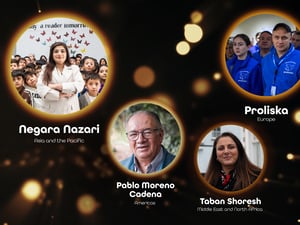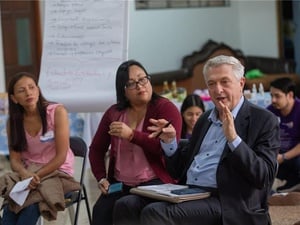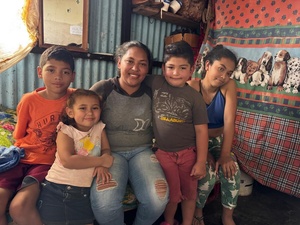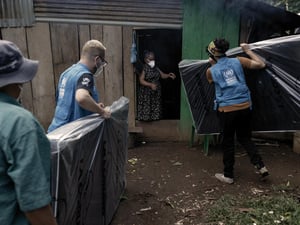El Salvador, Guatemala and Honduras emergency
El Salvador, Guatemala and Honduras emergency
A complex combination of gang-related violence, including gender-based violence and forced recruitment, food insecurity, increasing poverty, and climate change is driving forced displacement in El Salvador, Guatemala and Honduras.
Countries affected: Costa Rica | El Salvador | Guatemala | Honduras | Mexico | Panama

internally displaced persons across El Salvador, Guatemala, and Honduras
refugees and people in a refugee-like situation from the subregion
asylum-seekers originating from or within the three countries
El Salvador, Guatemala, and Honduras are facing a protection crisis driven by violence, inequality, and climate shocks, resulting in protracted and new displacement
While some areas - particularly El Salvador - have seen improvements in security, widespread violence, gender-based abuse, poverty, and the growing impacts of climate change continue to force people to flee their homes across the subregion. Nearly 320,000 people are internally displaced, and tens of thousands more seek asylum or refuge in neighboring countries.
Many of those forcibly returned or transiting through the region face renewed risks, including extortion, forced recruitment, and violence, particularly against women and children. In 2024, more than 6,000 Honduran nationals with protection needs were deported to Honduras, with many attempting to flee again. UNHCR, working with national governments and over 100 partners, provided humanitarian assistance, livelihoods support, legal aid, and psychosocial care to tens of thousands of displaced individuals, while advocating for long-term solutions and stronger national protection systems.
Protracted crisis: UNHCR may designate some situations as protracted crises. This is an informal classification that indicates a long-term crisis with widespread and deepening humanitarian needs. El Salvador, Guatemala and Honduras fall into this category. Learn more about UNHCR emergency classifications.
My goal is to stay in Mexico for ever. I really like this city, it’s very safe and peaceful.
I would like to visit my parents and my family, but I’m not going back to my country.
If I have to die here, I will do that.
What is UNHCR doing to help?
UNHCR is working across El Salvador, Guatemala, and Honduras to protect people displaced by violence, persecution, and climate shocks. In coordination with governments, UN agencies, and over 100 partners, UNHCR provides life-saving assistance, legal aid, mental health support, and livelihoods programmes to help displaced people rebuild their lives.
In 2024 alone, UNHCR supported over 28,000 people through mobile units and assistance centres in Guatemala, provided cash and emergency shelter to thousands of at-risk individuals in Honduras, and strengthened reception conditions at 15 shelters hosting 2,500 people monthly. Specialized services reached survivors of gender-based violence, while community-based peacebuilding initiatives promoted long-term integration and resilience.
Across the subregion, UNHCR also trains frontline workers, supports asylum systems, and advocates for durable solutions and the protection of vulnerable groups, including women, children, and returnees.








